London Film Academy: a chat with directors Anna MacDonald and Daisy Gili
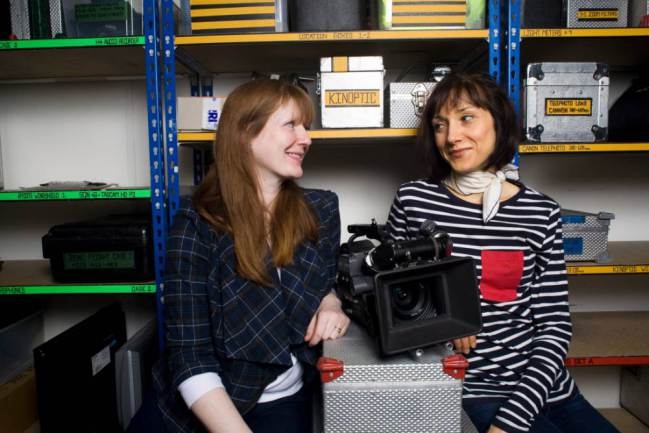
The London Film Academy celebrated its tenth birthday last August. The website reveals just how much LFA has achieved over its first decade; an extensive list of courses, from year-long graduate diplomas in film-writing and film-making to foundation degrees and short courses in make-up, editing and producing are on offer. A non-profit organisation, the academy shares its interest with the wider community and frequently holds open screenings. Students, travelling to study with LFA from all over the world, learn with tutors already renowned in the film industry, and the academy’s studios boast all the technology for students to see their projects through from inspiration to final screening. No wonder the list of successful graduates making their way in the industry is so long and impressive. These credentials make the academy’s size very surprising – it’s housed in a converted church in a quiet grove near Fulham Broadway, and is barely bigger than the townhouses that sandwich it. We’re here to meet Anna MacDonald and Daisy Gili, the film-maker and producer who founded the academy, to find out how great things can blossom from such a tiny package.
Anna MacDonald is the picture of sophistication in head-to-toe black, a striking image balanced by the warmth of her welcome. Previously a marketing consultant, MacDonald distributes the academy’s film projects, and is currently producing a feature film, Les Touristes, in France. Whisking me away on a tour of the period building, MacDonald leads me into the basement. The original crypt of the church has low ceilings and cosy rooms, ideal for intimate group discussion and one-on-one tutoring. Several production rooms boast state-of-the-art Apple Macs. Still, we’re intrigued at how the academy can house its students in such a limited space. “We may have up to 500 students at the academy at any one time,” says MacDonald, “obviously we have limited space, which is why a lot of camera work takes place off-campus. Creating sets within the academy is expensive and somewhat restricted… filming on location helps with student’s budgeting, contacts and wider experience.” LFA does, however, contain two very adaptable studios; the smaller of the two is posing convincingly as a 1950s study. The second, larger studio is in the top of the building, with an imposing vaulted ceiling and a beautiful light quality filtering in through the stained glass windows and skylight. Flats have been painted by affiliated students at the Wimbledon College of Art.
These connections between other arts education centres are another way students can cut their production costs. “Budgeting is an essential skill that we teach,” MacDonald explains. “Film-making is an expensive industry so it helps to know how to cut corners when starting out. It also means that our academy can be more inclusive. Our fees are relatively affordable, but even so we are unique in the fact that our courses have no hidden costs. From the entrance fee, we allocate the students a budget of £2,000 per group, and from this they see the project through from the initial idea to the finished product.”
So students are responsible for every stage of the production on a practical level? “With one-to-one assistance, yes,” MacDonald states, obviously referring to the reputable collection of guest lecturers at the academy (Lincoln Ascott, to name but one; director of Sugar, Sugar, which won the Best Newcomer award at the Raindance Film Festival). “It is important for us that courses are taught by people who are still working in the industry. These professionals are moving with the times and with the trends, are excited by the industry, are not jaded. They also provide useful contacts to helping hands within the industry.”
The skills that students learn range from the newest editing programmes to classical methods. A large room contains vintage camera equipment dating from the 1950s and earlier. Students are taught to shoot and develop with 16mm film. There’s a current vogue for the grainier images that this type of camera produces but, MacDonald states, for LFA this discipline is important on a deeper level as it “builds confidence and selectiveness. Although the latest camera equipment can have astounding results, and our students are able to explore this, digital mediums also mean that students can shoot endless reams of material for later editing. In the actual world of film-making, any editor would quake at being faced with so much data. The 16mm film, with its limited number of frames, teaches judgement”.
Next we are beckoned into an audition room, where a student and cast member are working closely with a director/lecturer. Everyone is on first name terms. “We’re a family here,” MacDonald smiles. “One of our lecturers died a few months ago and 80 of our students and graduates attended the funeral. We have also had three marriages among graduate students!”
Our tour over, Daisy Gili (the director, among other short films, of The Summer House, starring Talulah Riley) joins us in the small and perfectly formed cinema. “We were overjoyed that the film crew weren’t joining you,” laughs Gili, with notable relief. For such successful women, they have a salt-of-the-earth, sisterly attitude, and their passion for film and learning can be felt in their energy and openness. After complimenting my shoes, MacDonald and Gili expand on the original founding of the college ten years ago. “We met as students,” says Gili, “I graduated in mathematics. I wanted to pursue film-making, but I didn’t have time to spend three or more years pursuing a qualification. So, we set up our own course! This church had already been converted, it became available, so we went for it!”
LFA is unique as a film school founded and run by women. Although Gili and MacDonald seem indomitable characters, we’re intrigued to see if directing is still a challenge for women in the traditionally male-dominated world of directing. “This is changing,” says Gili confidently. “There are more prominent women carving out successful directing careers. But I think social factors do come into play. Film is an all-consuming profession and often doesn’t lend itself perfectly to family life. Woman film-makers often have to choose between family and work. Filming demands weeks, even months on location. Because the whole film-making crew and cast are interdependent, there is no room to take time out or to let anyone down. I have recently had my first child, and five weeks on location is not a possibility right now. But, we have always said, forget gender. If you are sincere about your goals and ready to forego other commitments for a time, you can achieve anything.”
Reflecting on the style of teaching that LFA offers, Gili expands on the importance of practical work. “There is a lot to be said for academic qualifications, and because of our affiliations with Goldsmiths and Cambridge’s Anglia Ruskin University, which allow students to enter master’s degrees with our diplomas, many of our graduates have entered academia and aim to become teachers. But practical skills across the field are very important – it fosters respect in collaborations to know and understand the work that others are doing. These skills also enable graduates to earn money in the industry while they work on their own creations… essential in a saturated film market, where it can take years to get an idea off the ground.”
“Students are allocated roles by election from other students, which they must pitch for,” Anna states. A lot of creative types are of a reserved nature, we observe. Does LFA have any provision for students who may be shyer about their contribution, but have the potential for success? “There is a difference between quietness and weakness,” states Gili, “and we try to create an environment that fosters intimacy and self-belief. This is why our production groups are small – usually only six people.” “But although we do try to create a sense of safety and caring,” MacDonald adds plainly, “there has to be an element of challenge. The industry is a highly competitive place and unless you can communicate your ideas with confidence, you have no chance in large-scale projects.”
How does LFA ensure such a varied student body, with 50% of undergraduates hailing from overseas? “Our affiliations,” says MacDonald. “We work closely with Goldsmiths, with Anglia Ruskin, and with art schools across London. We also have a lot of mature students pursuing a career change. One of our graduates is a middle-aged ex-physicist, who now works with Imaginarium.” (Lord of the Rings, The Hobbit) Are there other notables among LFA’s alumni? “We’ve been open for a relatively small space of time,” says Anna, “so we don’t have so many of the household names that you would find on the alumni lists of older film schools and colleges. But we have many students who are working their way up through the industry and have collaborated on some pretty exciting work… a student of ours, Claudio Napoli, who graduated in the film-making diploma is now working on Ridley Scott’s Exodus. We’ve had numerous student screenings at Cannes, Raindance, Euroshorts and London Film Festival. Daisy and I are in the process of setting up our own production company here, with LFA productions. It’s still in its early stages but we’re so excited by the work that we see from students that we want to work with them firsthand.”
Realising that almost an hour has passed since we began talking, MacDonald and Gili laugh – “Sorry! We just talk and talk and talk. All the time we are getting more excited about what we are doing, as you can see!”
LFA is obviously set for great things, with its impressive alumni credentials, its cross-national student body, and two passionate, remarkably driven women at its core. What is in store for LFA in the next decade, we ask. MacDonald and Gili catch each other’s eyes and giggle, revealing a friendship that is remarkably close, despite the obvious challenges of forming this reputable institution. “Let’s just say we have big dreams, and some very exciting things in the planning,” says Gili, “we don’t want to say too much as we don’t want to give anything away too soon… all we can say is, we are very excited. Keep an eye on us!”
Martha Thompson
Photo: Chris Brock
For further information about courses, fees and events and to view graduate work from London Film Academy visit here.

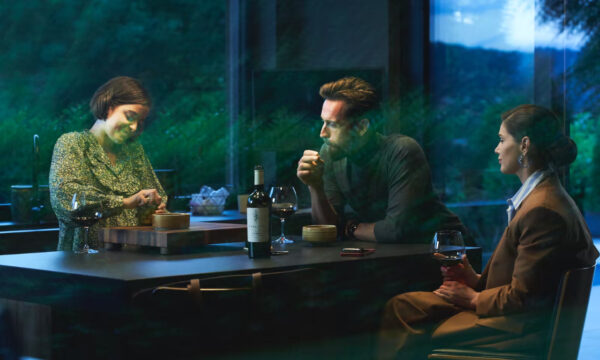
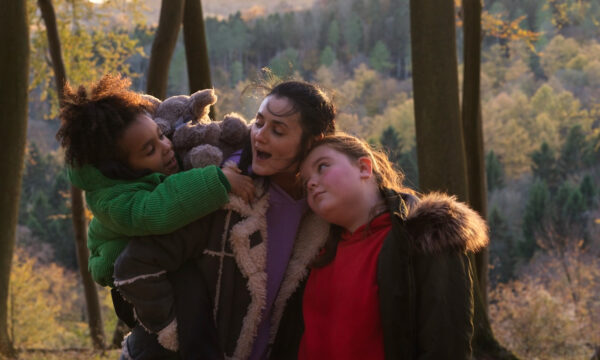
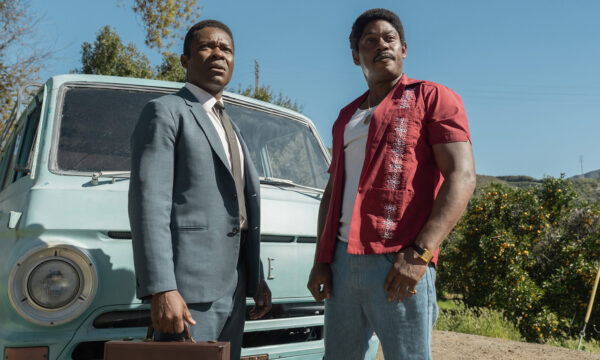

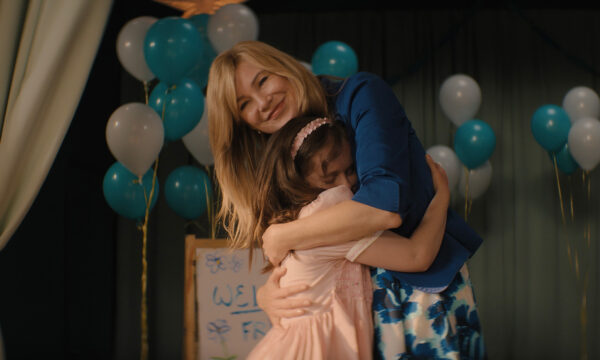


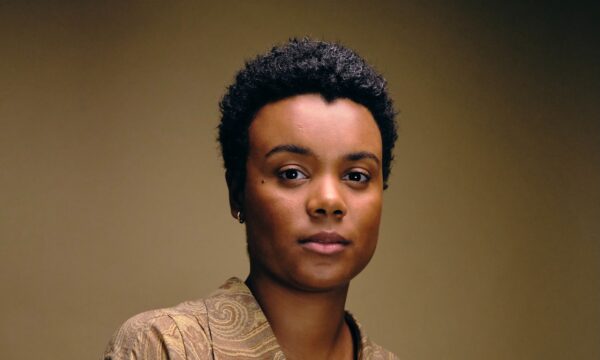















Facebook
Twitter
Instagram
YouTube
RSS